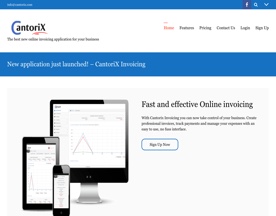How much does an accountant cost? Accountant costs vary: hourly rates ($150-$400), fixed fees (depends on services), and retainers. Small biz might pay $1k-$5k/month based on complexity.
When it comes to managing finances, businesses and individuals often turn to accountants for their expertise. However, one important consideration before hiring an accountant is the cost. Understanding how much does an accountant cost can help individuals and businesses make informed decisions about their financial management.

The cost of an accountant can vary depending on a number of factors, including the type of accounting services needed and the experience level of the accountant. Some accountants charge by the hour, while others charge a flat fee for specific services. It is important to have a clear understanding of the costs involved before hiring an accountant to avoid any surprises down the line.
Overall, while the cost of an accountant may seem daunting at first, the value they provide in terms of financial expertise and management can be invaluable. By understanding the costs involved and choosing the right accountant for their needs, individuals and businesses can make the most of their financial resources.
Key Takeaways
- Understanding the different factors that can affect the cost of an accountant is important before making a decision.
- Choosing the right accountant for one’s needs can help maximize the value of their financial management.
- While the cost of an accountant may seem high, the value they provide in terms of financial expertise and management can be invaluable.
Understanding How Much Does An Accountant Cost
When it comes to hiring an accountant, it’s important to understand the various factors that can influence their fees. Here are some key things to keep in mind:
Factors Influencing Accountant Fees
There are several factors that can impact the cost of hiring an accountant. These include:
- Experience and Expertise: Accountants with more experience and specialized expertise in certain areas (such as tax law or auditing) may charge higher fees.
- Location: Accountant fees can vary depending on the cost of living and business expenses in different areas.
- Scope of Work: The complexity and amount of work required will also affect the fee. For example, preparing a simple tax return will likely cost less than conducting a full audit.
- Size of Firm: Larger accounting firms may charge higher fees due to their overhead costs and reputation.
Average Cost of Hiring an Accountant
According to a survey by the National Society of Accountants, the average cost of hiring an accountant for tax preparation services was $294 in 2020. However, this can vary widely depending on the factors mentioned above.
Hourly Rate vs. Fixed Fees
Accountants may charge either an hourly rate or a fixed fee for their services. An hourly rate is based on the number of hours worked, while a fixed fee is a set amount for a specific project or service. Some accountants may also offer a retainer fee, which is a set amount paid upfront for ongoing services.
It’s important to discuss fee structures with your accountant upfront and get a clear understanding of what services are included in the fee. This can help avoid any surprises or misunderstandings later on.
Overall, accountant fees can vary widely depending on a variety of factors. It’s important to do your research and compare pricing and services before hiring an accountant.
Here is a resource with more information on average how much does an accountant cost and fee structures.
Types of Accounting Services

When it comes to accounting services, there are various types of services offered by accounting firms. These services are tailored to meet the different needs of businesses and individuals. The following are some of the most common types of accounting services:
Bookkeeping and Daily Transactions
Bookkeeping involves recording financial transactions such as sales, purchases, receipts, and payments. This service is important in keeping track of a company’s financial performance. Accounting firms offer bookkeeping services to businesses that require assistance in keeping their financial records up-to-date. This service may include bank reconciliations, accounts payable and receivable, and payroll processing.
Tax Preparation and Planning
Tax preparation involves the process of preparing and filing tax returns for individuals and businesses. Accounting firms offer tax preparation services to help individuals and businesses comply with tax laws and regulations. Tax planning, on the other hand, involves developing strategies to minimize tax liabilities. This service is designed to help businesses and individuals plan their finances in a tax-efficient manner.
Auditing and Financial Analysis
Auditing involves the examination of financial statements and reports to ensure that they are accurate and comply with accounting standards. Accounting firms offer auditing services to businesses that require an independent assessment of their financial performance. Financial analysis involves the interpretation of financial data to help businesses make informed decisions. This service is designed to help businesses identify areas of improvement and make strategic decisions.
It is important to note that the cost of accounting services varies depending on the type of service and the complexity of the task. Additionally, the cost may also vary depending on the location and size of the accounting firm. According to Investopedia, the average hourly rate for a certified public accountant (CPA) ranges from $100 to $300. However, it is important to note that some accounting firms may charge a flat fee for certain services.
Choosing the Right Accountant

When it comes to hiring an accountant, there are a few things to consider to ensure you choose the right one for your business needs. Here are some factors to keep in mind:
Certifications and Experience
One of the most important things to look for when hiring an accountant is their certifications and experience. A Certified Public Accountant (CPA) is a professional who has passed a rigorous exam and has met certain educational and experience requirements. Hiring a CPA can give you peace of mind knowing that your financials are in the hands of an expert.
Specialization and Business Needs
Another important factor to consider when choosing an accountant is their specialization and how it aligns with your business needs. Some accountants specialize in certain industries or types of businesses, such as startups or small businesses. It’s important to find an accountant who understands your specific needs and has experience working with businesses like yours.
Consultation and Referrals
Before hiring an accountant, it’s a good idea to schedule a consultation to discuss your needs and get a sense of their expertise and communication style. You may also want to ask for referrals from other business owners or professionals in your industry to ensure you’re hiring a reputable and trusted accountant.
Overall, hiring the right accountant can be a valuable investment for your business. By considering factors such as certifications, specialization, and referrals, you can find an expert who can help you navigate your financials with confidence.
For more information on hiring an accountant, check out this resource from Entrepreneur.com.
Accounting for Small Businesses
Small businesses often struggle with managing their finances, which is why hiring an accountant can be a great investment. However, many small business owners may be hesitant to hire an accountant due to concerns about the cost. In this section, we will explore the costs associated with accounting for small businesses and what services are typically included.
Budgeting and Cash Flow Management
A key component of accounting for small businesses is budgeting and cash flow management. This involves creating a budget for the business and managing the cash flow to ensure that the business has enough cash on hand to cover expenses. An accountant can help with this by creating a budget and cash flow forecast, tracking expenses, and providing advice on how to improve cash flow.
According to Entrepreneur, the cost of budgeting and cash flow management services for small businesses can range from $500 to $3,000 per month, depending on the complexity of the business.
Payroll Processing and Compliance
Another important aspect of accounting for small businesses is payroll processing and compliance. This involves calculating and processing payroll, as well as ensuring compliance with federal and state payroll tax laws. An accountant can help with this by setting up payroll systems, calculating taxes, and filing tax returns.
The cost of payroll processing and compliance services for small businesses can vary depending on the number of employees and the complexity of the payroll system. According to Fundera, the cost of payroll services can range from $20 to $200 per month per employee.
Financial Risks and Performance
How much does an accountant cost? Accountants can also help small businesses manage financial risks and improve financial performance. This involves analyzing financial data and identifying key performance indicators (KPIs) to track the business’s financial performance. An accountant can also provide advice on how to reduce financial risks and improve financial performance.
The cost of financial risk and performance services for small businesses can vary depending on the complexity of the business and the services required. According to Thumbtack, the cost of financial risk and performance services can range from $75 to $350 per hour.
In conclusion, the cost of accounting services for small businesses can vary depending on the services required and the complexity of the business. However, hiring an accountant can be a worthwhile investment for small businesses looking to improve their financial management and performance.
Accounting Software and Automation
Accounting software and automation have revolutionized the way businesses manage their finances. With the rise of cloud-based software, businesses of all sizes can now access powerful tools that were once only available to large corporations.
Online Bookkeeping Services
Online bookkeeping services have become increasingly popular in recent years. These services allow businesses to outsource their bookkeeping tasks to a team of professionals who can manage their finances remotely. This can be a cost-effective solution for small businesses that don’t have the resources to hire a full-time accountant.
Some popular online bookkeeping services include Bench and Bookkeeper.com. These services offer a range of features, including bank reconciliation, financial statements, and tax preparation.
Automating Financial Tasks
Automation can help businesses save time and money by streamlining financial tasks. For example, mileage tracking and time tracking can be automated using software like Expensify and Toggl. This can help businesses ensure that they are accurately tracking expenses and billable hours.
In addition, many accounting software options offer automation features like automatic bank feeds and invoice reminders. These features can help businesses stay on top of their finances without having to manually enter data.
Accounting Software Options
There are many accounting software options available to businesses today. Some popular options include QuickBooks, Xero, and FreshBooks. Each of these options offers a range of features, including invoicing, expense tracking, and financial reporting.
QuickBooks is a popular choice for small businesses, offering a range of features at an affordable price point. Xero is another popular option, particularly for businesses that need to manage multiple currencies. FreshBooks is a good choice for service-based businesses, offering features like time tracking and project management.
Overall, accounting software and automation can help businesses manage their finances more efficiently. By automating financial tasks and outsourcing bookkeeping, businesses can save time and money while ensuring that their finances are accurate and up-to-date.
Understanding the Value of Professional Accountants

Professional accountants are an essential part of any business, providing valuable services that help to ensure financial stability and growth. While the cost of hiring an accountant may seem high, the benefits they bring to the table make it a worthwhile investment for any business owner.
Cost-Benefit Analysis of Accountant Services
A cost-benefit analysis is a valuable tool for evaluating the potential return on investment (ROI) of hiring an accountant. While the cost of hiring an accountant may seem high, the benefits they bring to the table can easily outweigh the cost. By providing accurate financial statements and helping to identify areas where costs can be reduced, an accountant can save a business owner both time and money in the long run.
The Impact of Expertise on Business Growth
One of the most significant benefits of hiring a professional accountant is the expertise they bring to the table. By staying up-to-date with the latest tax laws and regulations, an accountant can help a business owner to navigate the complex world of finance with ease. This expertise can be particularly valuable when it comes to planning for growth, as an accountant can help a business owner to identify areas where investment is most likely to yield positive returns.
Avoiding Errors and IRS Penalties
One of the most significant risks of managing your own finances is the potential for errors or mistakes. Even a small mistake can result in significant financial penalties from the IRS, which can be devastating for a small business. By hiring a professional accountant, business owners can avoid these risks and ensure that their finances are being managed accurately and efficiently.
Overall, the value of hiring a professional accountant cannot be overstated. While the cost may seem high, the benefits they bring to the table make it a worthwhile investment for any business owner. By providing accurate financial statements, helping to identify areas for growth, and avoiding costly errors and penalties, a professional accountant can help to ensure the long-term success of any business.
Here is a helpful resource for understanding when to hire an accountant.
Additional Considerations

When it comes to hiring an accountant, there are several additional considerations that one should take into account. These considerations can impact the cost of hiring an accountant, as well as the overall value that they provide.
Business Structure and Tax Implications
The type of business structure that you have can impact the complexity of your tax situation and, as a result, the cost of hiring an accountant. For example, if you have a sole proprietorship, your tax situation may be relatively straightforward and you may not need an accountant to help you file your taxes. However, if you have a more complex business structure, such as a partnership or corporation, you may need more help from an accountant to ensure that you are meeting all of your tax obligations.
Additionally, an accountant can provide valuable advice on tax planning and strategies to minimize your tax liability. This can be especially important if you are looking to grow your business and want to ensure that you are maximizing your profits.
Financial Advice for Investments
In addition to tax planning, an accountant can also provide valuable financial advice for investments. They can help you analyze your financial situation and make recommendations on how to invest your money to achieve your financial goals.
It is important to note that not all accountants are licensed to provide investment advice. If this is a service that you are interested in, make sure to look for an accountant who is also a licensed financial advisor.
Finding an Accountant for Complex Needs
If you have complex accounting needs, such as international tax considerations or a high volume of transactions, it may be worth investing in an accountant who specializes in these areas. These accountants may have a higher hourly rate, but they can provide valuable expertise and save you time and money in the long run.
When looking for an accountant with complex expertise, it is important to do your research and find someone with a proven track record. One resource to consider is the American Institute of Certified Public Accountants, which has a directory of certified public accountants with specialized expertise.
Overall, the cost of hiring an accountant can vary depending on your individual needs and the complexity of your financial situation. By considering these additional factors, you can make an informed decision about whether hiring an accountant is the right choice for you.
Frequently Asked Questions

What are typical hourly rates for a Certified Public Accountant (CPA)?
According to Investopedia, the average hourly rate for a CPA ranges from $200 to $500 per hour. However, rates may vary depending on the location, experience, and services provided.
Can the cost of hiring an accountant for tax filing be justified?
Hiring an accountant for tax filing can be justified for individuals or businesses with complex financial situations. According to The Balance, “If you have a complicated tax situation, such as owning a business, rental properties, or investments, or if you’ve experienced a major life event, such as getting married or divorced, having a child, or retiring, then it’s a good idea to hire an accountant.”
What is the average annual expense for a personal accountant?
The average annual expense for a personal accountant can range from $500 to $3,000, depending on the services provided and the complexity of the individual’s financial situation. NerdWallet suggests that individuals with simple tax situations may only need to spend $200 to $500 for tax preparation services.
What fees should be expected when employing an accountant for a small business annually?
Small businesses can expect to pay an average of $1,000 to $5,000 annually for accounting services, according to Business News Daily. However, fees may vary depending on the size of the business, the complexity of the financial situation, and the services provided.
Do individuals typically require the services of an accountant?
While not all individuals require the services of an accountant, it may be beneficial for those with complex financial situations or those seeking financial advice. According to Forbes, “If you have complex investments, own a business, or have a unique financial situation, it’s probably worth it to hire an accountant.”
What are common charges accountants impose for various services?
How much does an accountant cost? Common charges for accounting services may include hourly rates, flat fees, or a percentage of the client’s assets. According to The Balance, “Hourly rates for accountants range from $40 to $400 depending on the type of work, the size of the firm, and location.” Flat fees may be charged for specific services such as tax preparation or bookkeeping. A percentage of assets may be charged for investment management services.















